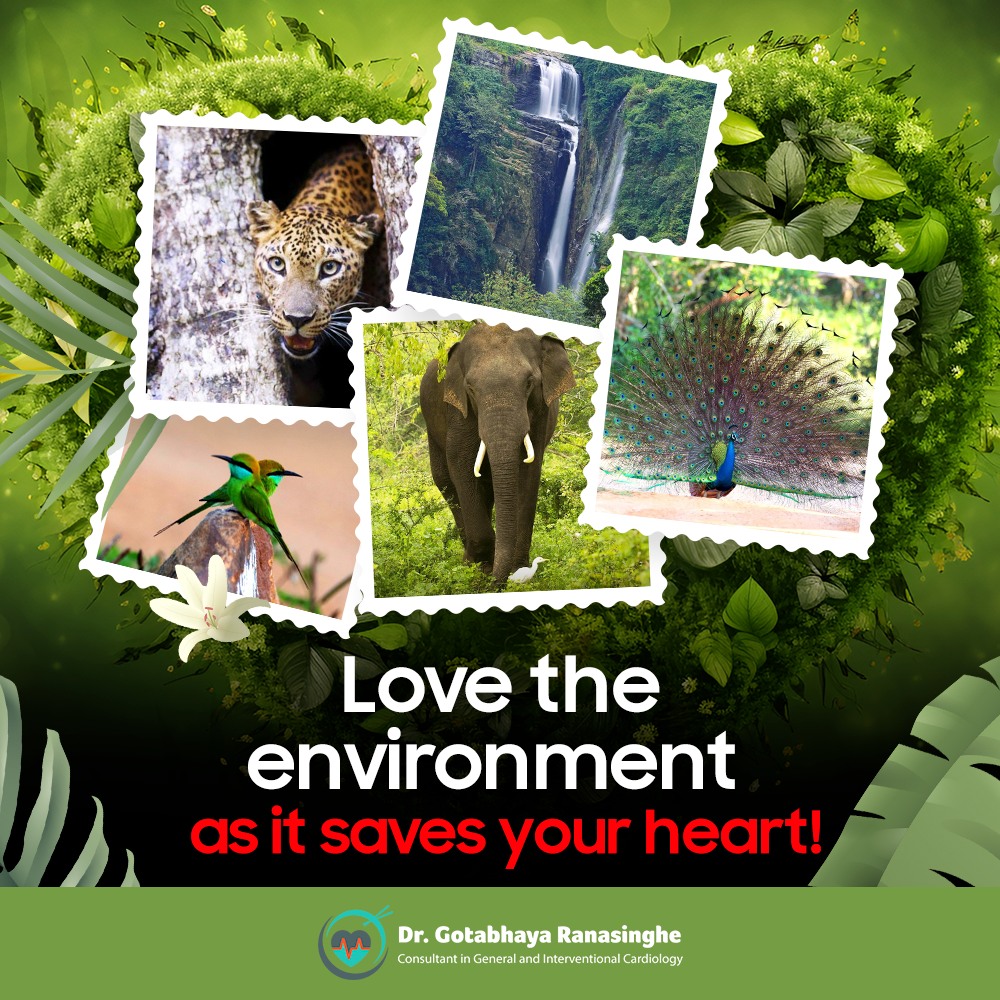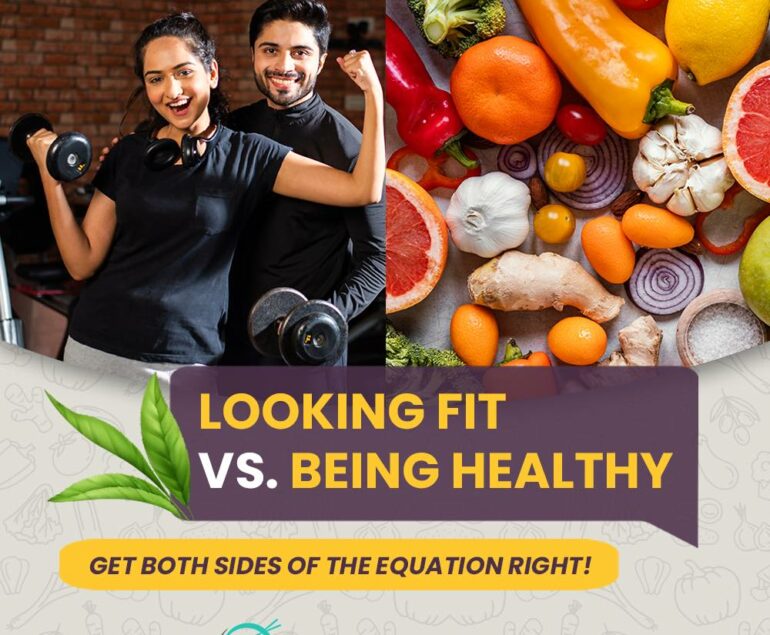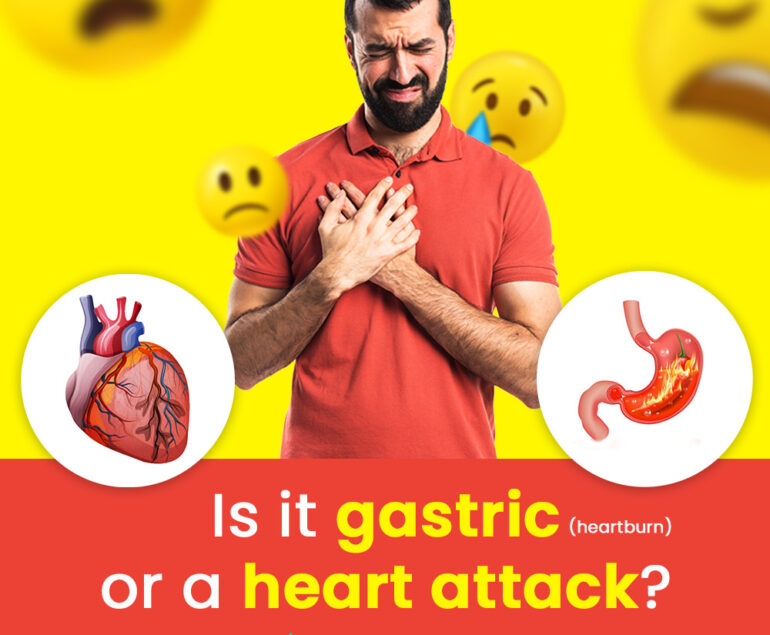Love the environment as it saves your heart!
Did you know that cardiovascular disease is the world’s leading cause of disability and death?
Yes, we frequently discuss maintaining a balanced diet and leading an active lifestyle to fend off heart disease. But another significant but frequently disregarded risk factor for cardiovascular disease is environmental pollution.
Recent scientific studies have shown that heart health is greatly affected by environmental health.
- Chest Pain – Pain, a burning sensation, sudden tightness, squeezing, or uncomfortable pressure in the centre of your chest. Sometimes this discomfort may last for only a few minutes and return a few hours or a day later. This is a clear sign that your heart muscle isn’t getting the required amount of blood. In this instance, it’s advisable to seek professional medical assistance.
- Pain radiating through other parts of your body – Pain, prickling, pinching sensations, or numbness in one or both of your arms, back, shoulder, neck, throat, stomach, teeth, or jaw.
- Unusual sweating, sudden heat & flushing – If your blood vessels are blocked, the effort of carrying blood is much more, and therefore your body starts to sweat more as it tries to keep the body temperature down during the additional exertion.
- Unusual fatigue – Getting tired easily doing the simplest day-to-day activities like walking etc. The additional stress on your heart when it tries to pump blood when the blood flow is blocked can cause fatigue.
- Shortness of breath – Your heart muscle pumps and circulates blood to the tissues, and other muscles. If the heart muscle gets weak, the supply of oxygen to the lungs will lessen and may cause shortness of breath.
- Lightheadedness or dizziness – This May occur during or preceding a heart attack. If you feel lightheaded or dizzy, you should seek medical attention.
- Sudden nausea, vomiting, or indigestion – Some patients experience indigestion problems before a heart attack. If such unexplained issues occur, do not dismiss them as heartburn/ gastritis/food poisoning.
- Unusual heartbeat/ palpitations – Your heart has a consistent rhythm and a steady beat. However, if you feel a skipping or pounding sensation in your heart, consult a doctor.
𝐄𝐧𝐯𝐢𝐫𝐨𝐧𝐦𝐞𝐧𝐭𝐚𝐥 𝐫𝐢𝐬𝐤 𝐟𝐚𝐜𝐭𝐨𝐫𝐬 𝐚𝐧𝐝 𝐜𝐚𝐫𝐝𝐢𝐨𝐯𝐚𝐬𝐜𝐮𝐥𝐚𝐫 𝐝𝐢𝐬𝐞𝐚𝐬𝐞𝐬!
𝑨𝒊𝒓 𝒑𝒐𝒍𝒍𝒖𝒕𝒊𝒐𝒏 –
- The most frequent contributors to outdoor air pollution include dust, car exhaust, smoke from burning materials, and gaseous industrial waste.
- Cooking is the source of the most prevalent indoor pollution. The air within the house can get contaminated if there is not enough room for combustion gas or smoke to escape from the kitchen or a functional chimney.
- Smoking can also pollute the air.
𝐀𝐝𝐯𝐞𝐫𝐬𝐞 𝐞𝐟𝐟𝐞𝐜𝐭𝐬 𝐨𝐟 𝐚𝐢𝐫 𝐩𝐨𝐥𝐥𝐮𝐭𝐢𝐨𝐧 𝐨𝐧 𝐭𝐡𝐞 𝐡𝐞𝐚𝐫𝐭!
- Air pollution raises the risk of heart attacks by causing atherosclerosis and a quicker buildup of cholesterol deposits with calcium in the coronary arteries.
- The blood arteries can become more constricted by systemic inflammation brought on by air pollution.
- Blood clogs/blood clots can form due to blood cell dysfunction. This can lead to heart attacks.
- The blood vessels’ walls can grow harder with prolonged exposure to air pollution, which will cause the vessels to become narrower. The blood vessels age prematurely as a result of this, and high blood pressure or hypertension can develop as well.
- An abnormal heartbeat can form, which could lead to an extra heartbeat or even life threatening rhythm abnormalities.
𝑵𝒐𝒊𝒔𝒆 𝑷𝒐𝒍𝒍𝒖𝒕𝒊𝒐𝒏 –
- According to a recent study, long-term exposure to noise can lead to heart disease.
- hronic stress, sleep disruption, anxiety, and depression are all effects of noise that can impact heart health.
𝐒𝐭𝐮𝐝𝐢𝐞𝐬 𝐡𝐚𝐯𝐞 𝐟𝐨𝐮𝐧𝐝 𝐭𝐡𝐚𝐭:
- 5% of heart attack hospitalizations are due to high noise levels.
- n comparison to low-noise locations, the rate of heart attacks is 72% higher in areas with high noise.
- About 1 in 20 heart attacks are caused by excessive noise.
𝑻𝒐𝒙𝒊𝒄 𝑴𝒆𝒕𝒂𝒍 𝑷𝒐𝒍𝒍𝒖𝒕𝒂𝒏𝒕𝒔 –
Metals such as lead, mercury, arsenic, and cadmium are now linked to increased risk of cardiovascular disease.
The mortality due to ischemic heart disease, arrhythmia, heart failure, and cardiac arrest is most closely correlated with chronic exposure to particle pollution.
Cadmium: Consuming green, leafy vegetables, cereals cultivated in contaminated soils, and tobacco smoke are the main ways to be exposed to cadmium.
Arsenic: We are a nation fond of rice, and it is also one of our main cultivations. Given that most people consume rice for all three meals each day, we are exposed to arsenic by eating unpolished rice to a greater extent and also through drinking water.
Mercury: Mercury contamination is mostly caused by gold mining and coal combustion. When coal is burned, mercury vaporizes and enters the atmosphere, & then precipitates into lakes, rivers, and oceans. Metallic and inorganic mercury are both transformed into extremely poisonous compounds called methylmercury in aquatic conditions. In aquatic habitats, methylmercury builds up in the food chain and reaches high concentrations in predator species like tuna & salmon that are consumed by people.
𝑪𝒉𝒆𝒎𝒊𝒄𝒂𝒍 𝑷𝒐𝒍𝒍𝒖𝒕𝒂𝒏𝒕𝒔 –
- Over the past 50 years, the manufacturing of produced chemicals has grown dramatically, causing widespread environmental contamination and significant human exposure. Chemicals have been linked to increased cardiovascular disease risk factors.
- Bisphenol A (BPA) and phthalates are two substances connected to plastic. These components are widely used in paper products, pharmaceuticals, food preservatives, and personal care products.
𝐏𝐫𝐨𝐭𝐞𝐜𝐭 𝐭𝐡𝐞 𝐟𝐚𝐮𝐧𝐚 𝐚𝐧𝐝 𝐟𝐥𝐨𝐫𝐚, 𝐚𝐧𝐝 𝐭𝐡𝐞𝐲 𝐰𝐢𝐥𝐥 𝐤𝐞𝐞𝐩 𝐲𝐨𝐮𝐫 𝐡𝐞𝐚𝐫𝐭 𝐬𝐚𝐟𝐞!
I have firsthand experience that Mother Nature has healing powers!
I always advise my patients about the benefits of spending time outside. Taking a leisurely stroll around a park or a hike through the wilderness can be wonderfully therapeutic and healing.
This charming island nation is blessed with sumptuous vegetation including forests, wetlands, mountains, waterfalls, rivers, springs, and wildlife that offer us the best of nature.
Moreover, how can we ever forget that we are surrounded by the magnificent blue-green Indian Ocean? How could one resist the allure of nature? I always put trekking along one of nature’s countless trails at the top of my bucket list.
In truth, ecotherapy, also known as green therapy or nature therapy, is a growing field of research inspired by the idea that our natural environment and health are intertwined.
Whenever I get a holiday I always find time to make my escape to nature, and nature in return immediately begins to heal both my body and mind.
However the devastating effects of deforestation and gradual urbanization on these landscapes I adore cannot be ignored. The once lush and vibrant greenery that used to adorn our country is now rapidly disappearing.
Ecosystems are destroyed, making way for new structures and developments.
The delicate balance of nature is disrupted, and countless species are left homeless, their habitats destroyed. I think it is important to remember to protect our precious natural heritage as we continue to progress.
𝐒𝐚𝐲 𝐧𝐨 𝐭𝐨 𝐩𝐨𝐥𝐥𝐮𝐭𝐢𝐨𝐧, 𝐬𝐭𝐚𝐫𝐭 𝐞𝐦𝐛𝐫𝐚𝐜𝐢𝐧𝐠 𝐭𝐡𝐞 𝐞𝐧𝐯𝐢𝐫𝐨𝐧𝐦𝐞𝐧𝐭, 𝐚𝐧𝐝 𝐦𝐚𝐤𝐞 𝐮𝐬𝐞 𝐨𝐟 𝐭𝐡𝐞 𝐦𝐚𝐧𝐲 𝐭𝐡𝐞𝐫𝐚𝐩𝐞𝐮𝐭𝐢𝐜 𝐚𝐝𝐯𝐚𝐧𝐭𝐚𝐠𝐞𝐬 𝐭𝐡𝐚𝐭 𝐧𝐚𝐭𝐮𝐫𝐞 𝐨𝐟𝐟𝐞𝐫𝐬 𝐮𝐬!
Improved breathing – More time spent in nature can help reduce your risk of respiratory issues.
Improved sleep – Spending time outdoors in the sun can result in better sleep.
Mental renewal – When you need to relax and recharge, the natural world can provide an emotional and mental haven.
Better emotional health – Spending time outside can do more than just soothe uncomfortable or unpleasant feelings like fear, worry, and sadness. It can support the development of positive feelings like optimism, happiness, and tranquility.
𝐍𝐚𝐭𝐮𝐫𝐞 𝐚𝐧𝐝 𝐮𝐬: 𝐚 𝐫𝐞𝐥𝐚𝐭𝐢𝐨𝐧𝐬𝐡𝐢𝐩!
Did you know that flora provides more than 90% of the medicine we use to treat illnesses? Animal and plant species are also our primary sources of food. It should be mentioned that without the flora, there would be no water. The relationship between flora and fauna and human life is so magnificently intricate that they are absolutely necessary for us to survive.
I urge you to interact with nature more, give her your time & attention, and in return, she will take care of you.
We recently celebrated World Environment Day. Have we started to do our bit? Let’s raise awareness about the need to create a healthy environment to protect our hearts and general health.
Remember, saving the environment saves your heart!




